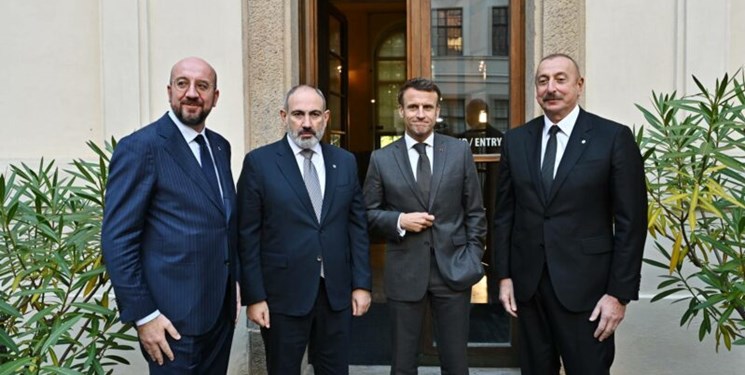In an interview with the Strategic Council on Foreign Relations website, Morteza Makki said: France recently announced that it has summoned its ambassador to the Republic of Azerbaijan for consultation; Paris has also accused Baku of harming bilateral relations.
He continued, “The issue of tension between France and the Republic of Azerbaijan can be related to the historical roots and cultural ties between Paris and the Armenian community.” After the collapse of the Soviet Union, the Caucasus region became a place of conflict between regional and transregional actors.
He added: “In 1994, after the Armenian separatists of the Nagorno-Karabakh region declared independence, it was only Armenia that recognized this independence, but regional and transregional actors such as Russia, America, France, and the Islamic Republic Iran each had their position.
According to Makki, at that time, the Organization for Security and Cooperation in Europe (OSCE) attempted to manage the tension between Armenia and Azerbaijan within the framework of the Minsk Group, but what we witnessed in practice was an armed peace between Azerbaijan and Armenia for more than 2.5 decades. There was no development towards lasting peace between these two countries.
Makki emphasized: “Finally, in 2020, the Republic of Azerbaijan attacked the Nagorno-Karabakh region by using the opportunity of the internal crisis and tension in Armenia and annexed this region to its territory once again. After that and in the last three years, the main actors of the North Caucasus region tried to play a role according to the process of developments in the Caucasus region and the expansion of influence in this region.
Makki also explained Yerevan’s approach in this conflict: “In the meantime, due to the loss of the Karabakh region and the Russians’ lack of commitment to their agreement with this country regarding helping them, Armenia actually became more inclined towards the West.”
This expert continued: “On the other hand, Azerbaijan tried to stabilize its position in the Karabakh region by getting closer to Turkey and improving its relations with Russia, and sought to capture areas of Armenian territory for direct communication with the Republic of Nakhchivan.” “Baku’s approach has greatly increased tension in the region and has accelerated Armenia’s approach to Europe, especially France.”
Referring to the announcement by the Russians about the withdrawal of the peacekeepers of this country from the buffer line between Armenia and the Republic of Azerbaijan in the Nagorno-Karabakh region, the expert on European issues said: “Currently, this region is in a new situation. The Russians are leaving the North Caucasus region after nearly two centuries. In this situation, France, considering that they are the most influential lobby of Armenians in this country, is trying to play a more influential role in the process of development in the Caucasus region through arms and economic support from Armenia.
He continued: “This issue has caused tension in the relations between Azerbaijan and France, and the French ambassador in Baku has been summoned.”
Makki also explained the prospects of these developments: “The future of the Caucasus region will face a new trend with the withdrawal of Russian peacekeepers from Armenia, and each of the actors in this region will try to expand their sphere of influence in the Caucasus region; Turkey, France, America, and Iran are countries that each have special interests in the region, and we will witness the formation of new equations in the Caucasus region.
He emphasized: “Due to the conflicting interests of the actors in this region, the Caucasus will definitely move toward political tension and escalation.” In the meantime, France is perhaps the first and only European country that has always tried to have an important base in the Caucasus region.
Makki said about the reasons for France’s approach to Armenia: “The most numerous Armenian community is in France, which has a good financial and economic situation. They are trying to establish strong ties between France and Armenia by influencing the decision-making process in the French National Assembly and the French government. The French National Assembly was the first European parliament to condemn the massacre of Armenians by the Ottomans in 2015. This position faced a strong reaction from the Ankara government, and the chain of condemnation was extended to other EU member states.
According to Makki, “So far, Azerbaijan has been trying to have balanced relations with Russia, Europe, and the United States, but Ilham Aliyev’s policies towards Armenia have caused this approach of Baku to be challenged in the past few decades, and the recall of the French ambassador from Baku may be the starting point of these challenges.”










0 Comments